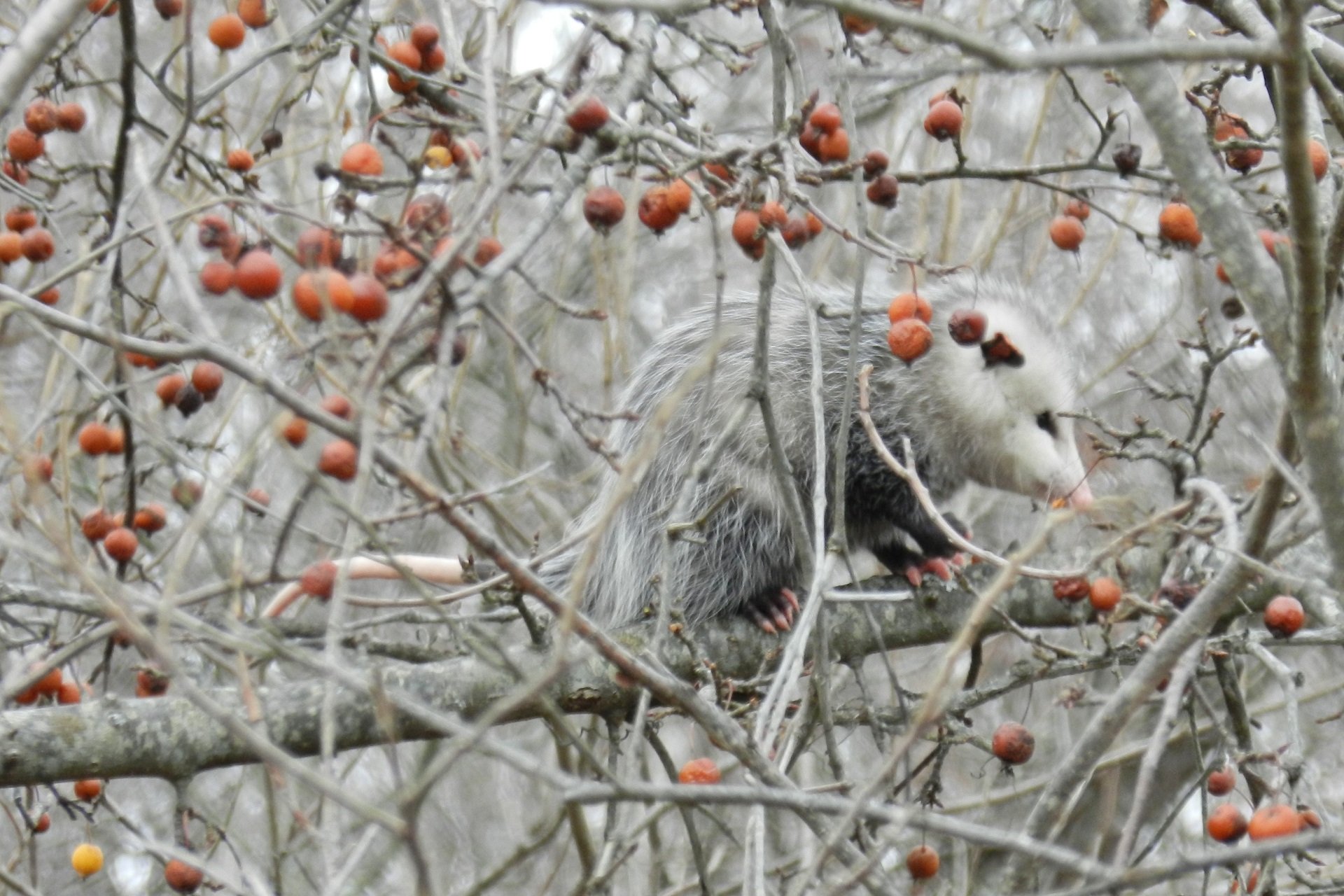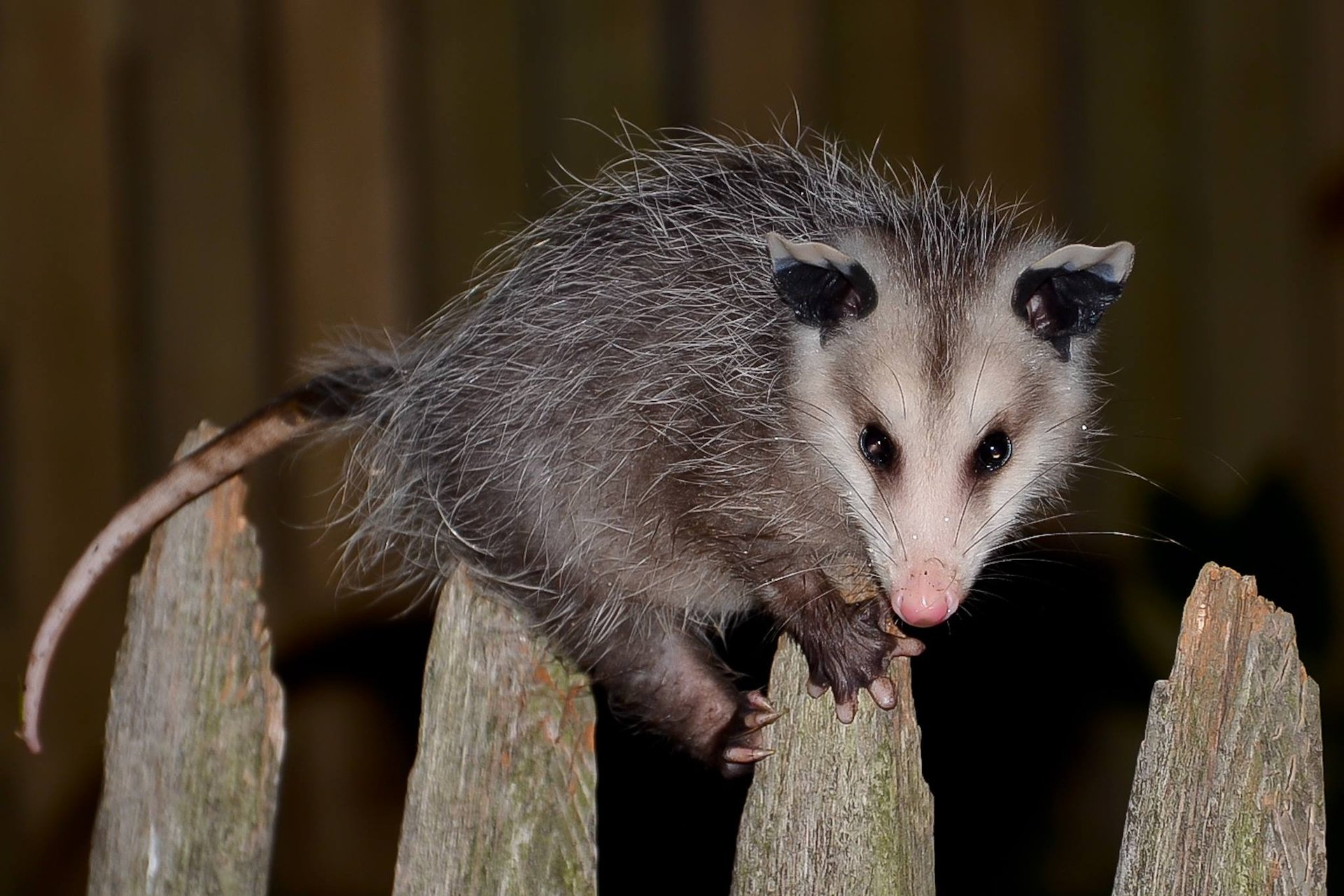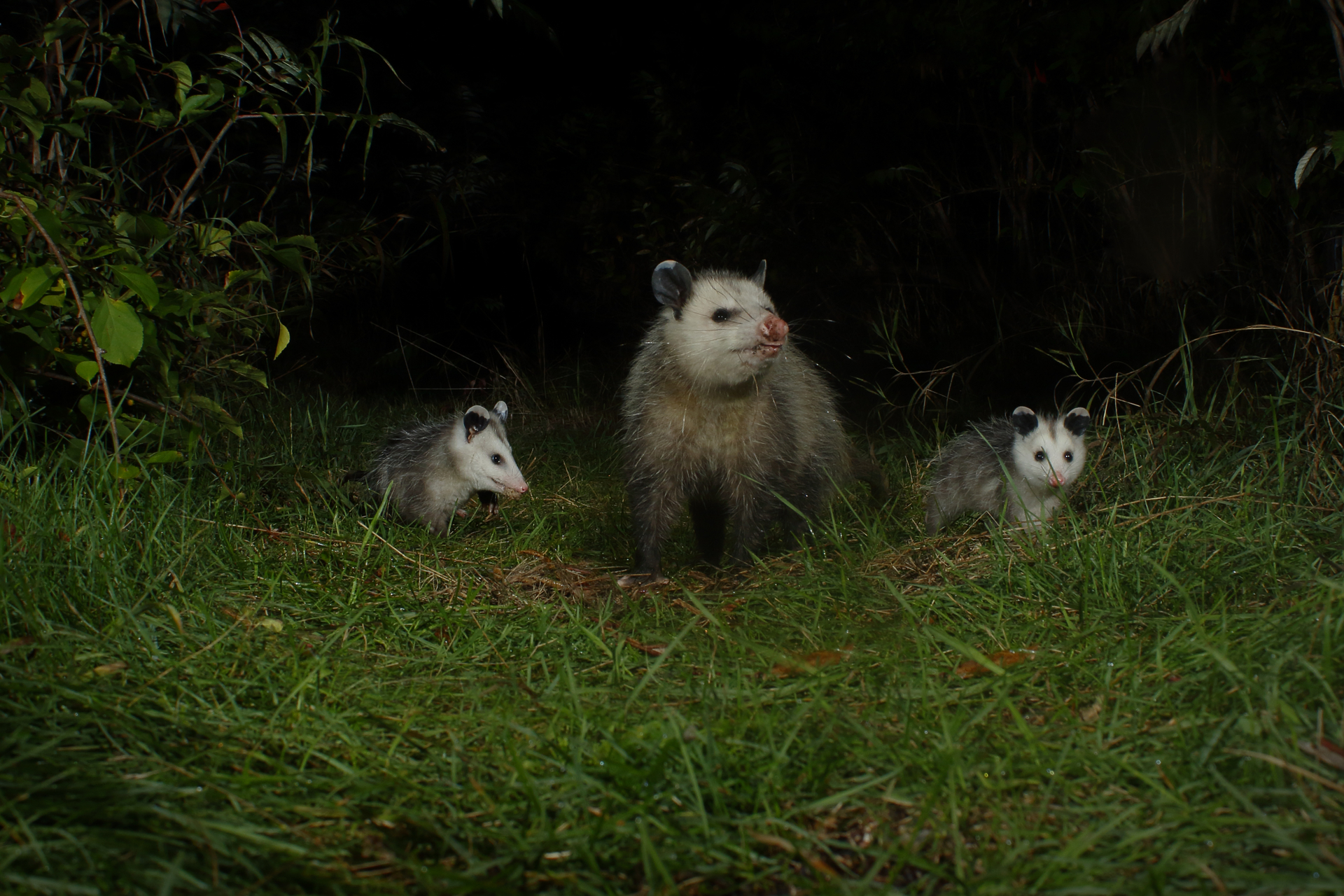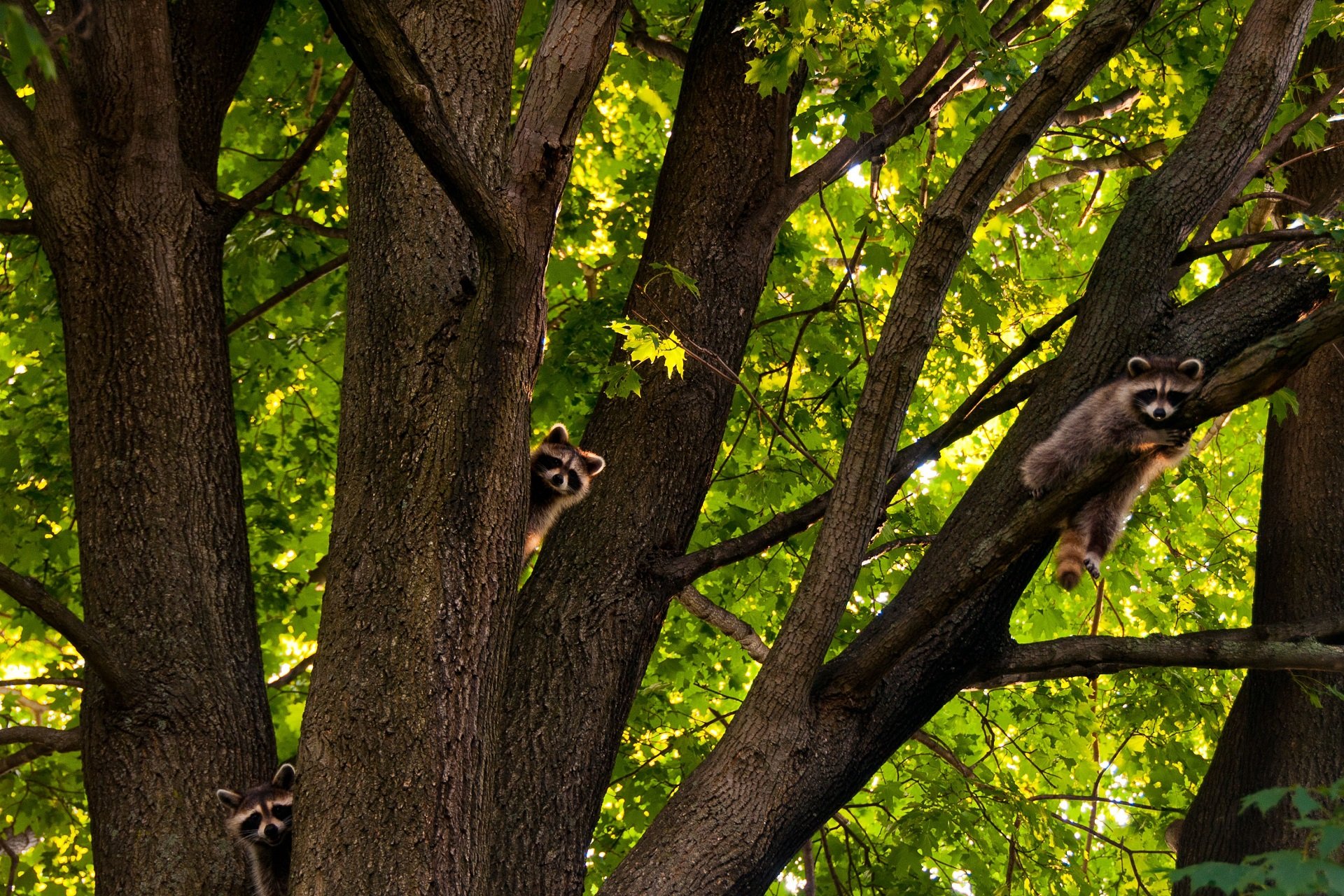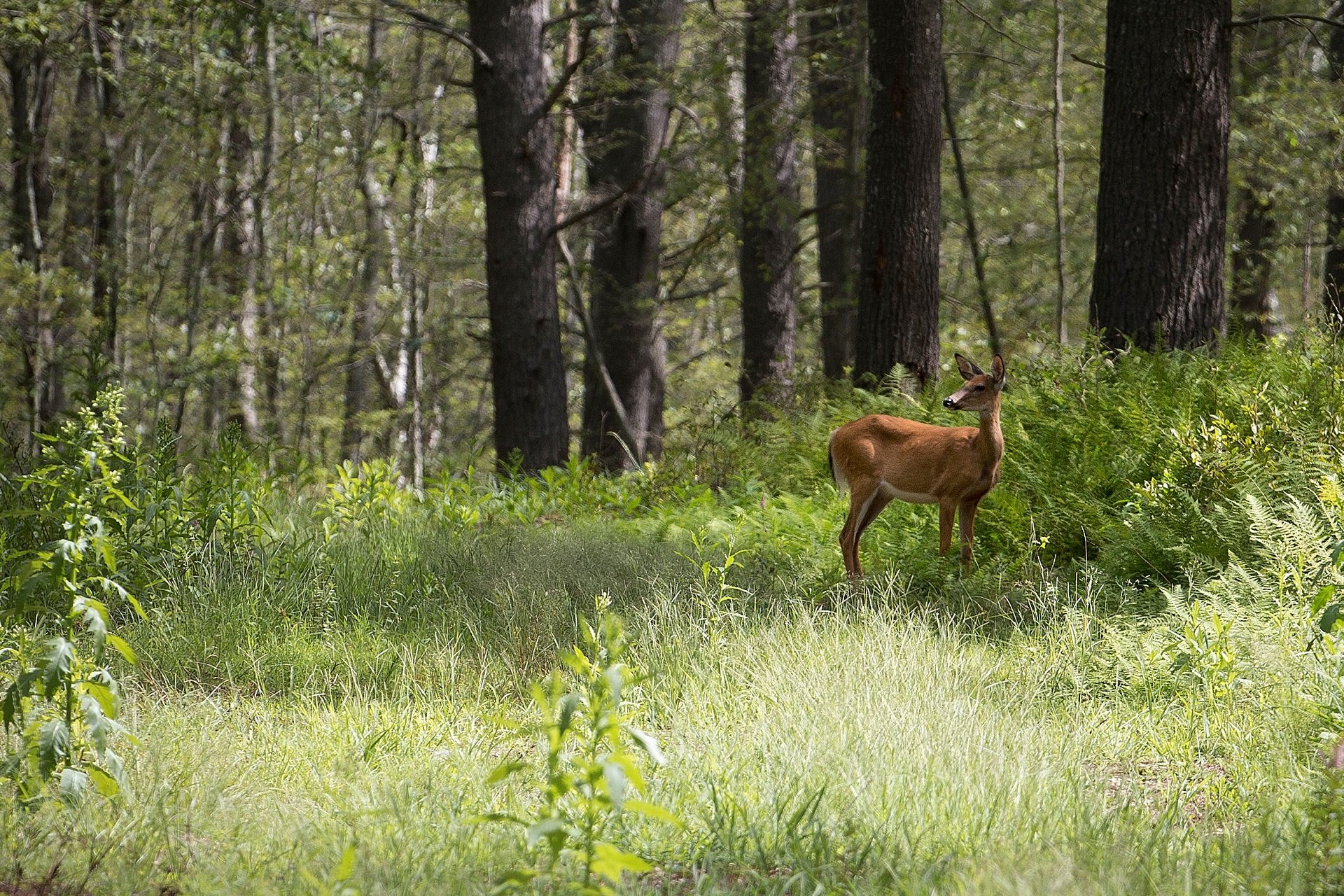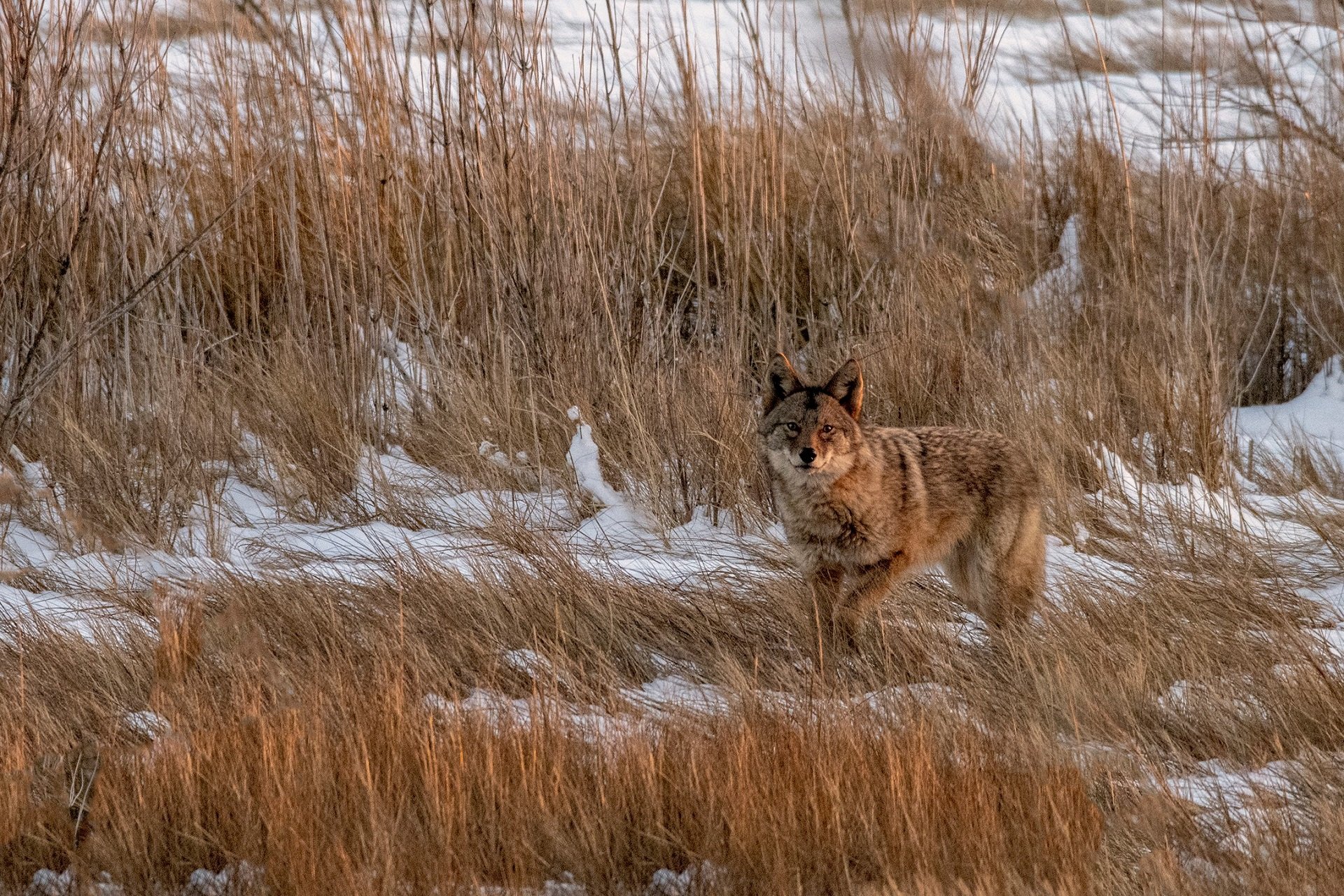Mammals in Massachusetts
Opossums
The Virginia Opossum is more closely related to kangaroos than to any other mammal in North America, and they are our only marsupials, or pouched animal. The Virginia opossum (Didelphis virginiana) also known as the North American opossum is the only marsupial or “pouched” mammal in North America. They are closely related to other marsupials such as the kangaroo and the koala. While once non-existent in New England, opossums are abundant in Connecticut, Rhode Island, and Massachusetts. They can even be found as far north as Vermont and Maine.
How to Identify Opossums
Virginia Opossums are about the size of housecats, weighing between 4-11 pounds and 2-3 feet in length. Their mostly white faces blend into hairless black ears with a pink tip and a gray body. They have a pointed pink nose, short legs, and a long rat-like tail which is a prehensile tail adapted for wrapping around and grasping things like tree limbs and can even hang from their tails for a short while. Similar to human thumbs, their back feet have an opposable big toe that helps them grasp twigs and branches.
Opossum Behavior
These animals walk in a curiously slow, hobbling manner. However, they’re able climbers. They often use their flexible tails for balance, or to hold nesting material when climbing, and young use their tails to cling to their mothers’ backs.
Opossums are nocturnal and are mostly active at night, with eyes that are well-adapted to darkness. During the day, they den up in cavities, such as hollow trees, brush piles, or spaces under structures built by people, but usually don’t spend more than a few nights in their new home before moving on. They can be found in open woodlands near water and urban or suburban areas.
Opossums are most active during spring and summer, wander widely in search of food, and rarely spend two consecutive days in the same spot. In the fall and winter, they occupy a more permanent nest lined with leaves. They’re not true hibernators; except for brief periods during severe weather, they’re active throughout the winter. Since they are more accustomed to warm weather, colder months can be a challenge for opossums, and they often find homes, garages, or sheds to stay warm.
One of the possum’s famous defense tactics is to play dead. When confronted by a predator their first line of defense is to hiss, growl, and show their teeth. If the predator is not deterred and the opossum is attacked, they fall on their side and become completely limp, with their tongue hanging out of their mouth. Possums often defecate and may also emit a greenish, foul-smelling substance from their anal glands. During this state—which can last up to six hours—the opossum’s breathing and heart rate decrease.
What Do Opossums Eat?
Opossums are omnivores, meaning that they will eat a variety of foods, including meat and plants. Insects and carrion (dead or decaying animals) are important parts of their diet. They will also eat amphibians, reptiles, earthworms, birds, and small mammals, as well as seeds and fruit. Keep your garbage in a secure location, because opossums won’t miss an opportunity to rummage through tossed out human food.
Opossum Life Cycle
Opossums breeding season can begin as early as December and continue through October with most infants born between February and June. They have 1-3 litters a year, with an average of 8-9 infants. Females give birth only about two weeks after mating. The newborns are grossly underdeveloped—naked, blind, and almost transparent, they’re only about half an inch long and weigh about 0.13 grams, slightly smaller than a honeybee.
They immediately climb into the female’s pouch and attach themselves to one of 13 teats arranged in a horseshoe configuration. If there are more than 13 babies, only those babies able to grasp a teat will survive. Once the nipple is in the baby’s mouth, it swells, making it virtually irremovable. This vital connection remains unbroken for about two months.
At about two months, their eyes open and they begin to spend time out of the pouch. The young are fully independent at about three months.
Possum or Opossum?
Opossum is the official name, however, both opossum and “possum” were written down by early colonists as approximate translations of the Virginia Algonquian word “apousoum,” which meant “white animal.”
How to Deter Opossums
Although Virginia Opossums may look intimidating, they rarely come into contact with humans and pose any threat. It is very rare for an opossum to contract rabies. Sometimes an opossum creates dens in an undesirable location, and the best solution is patience; the animal will probably move on after a few days.
The best way to keep opossums and other wild creatures out of homes and other structures is to exercise prevention. Make sure all entrances to likely den sites in your house are closed off. If a Virginia opossum has already established residence, wait until it leaves on a feeding foray. Once you’re absolutely certain that the tenant is out, close the access. Opossums adjust easily to eviction.
To prevent any wandering opossums, maintain any bird feeders that spill onto the ground. These free meals attract other wildlife besides birds, like opossums. Secure any animals you have at night, including poultry, for the safety of your animals and the opossum.
Threats to Opossums
Since these marsupials like to eat roadkill, they often end up getting hit themselves. Because they rely on their mother’s pouch, young opossums are particularly vulnerable if a mother is killed.
If you encounter a litter of orphaned opossums, call MassWildlife at 508-389-6300 for advice on the best course of action.
How Mass Audubon Helps Opossums
Mass Audubon is helping opossums by protecting their habitats, building resilient landscapes, and creating a safe ecosystem where they can thrive. You can help us conserve and protect opossums by becoming a member today.
Stay Connected
Don't miss a beat on all the ways you can get outdoors, celebrate nature, and get involved.



